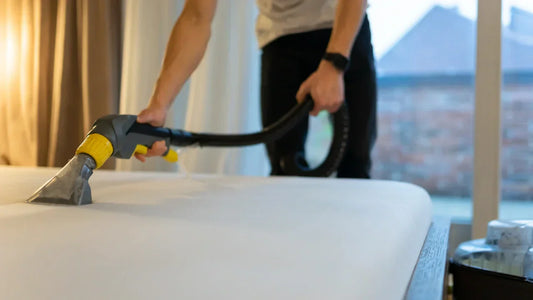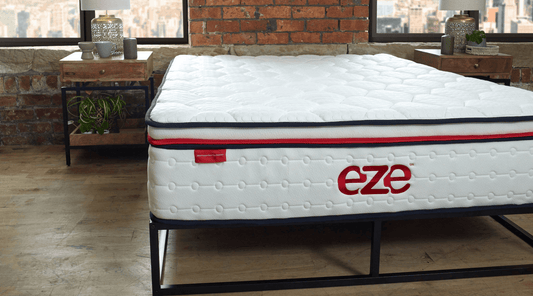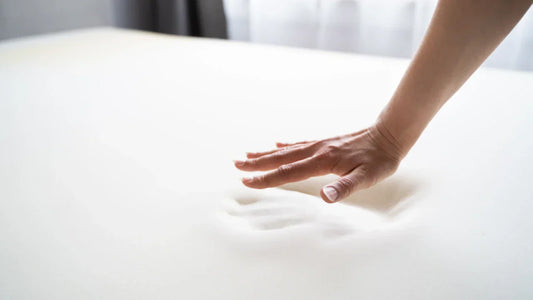Like most things in life, if you look after your mattress, it will look after you too. Your mattress has been designed to support you daily for a good night’s sleep. In return, you should maintain it to keep it in optimum condition during its lifespan.
The Yucky Part

You probably spend between six to eight hours lying on your mattress every night. During this time, dust, food, dirt, bacteria, dead skin, sweat, and oil from your body can all make their way onto it. That's why mattress hygiene should be high on your agenda if you want to keep your bed fresh, clean and odour free.
In general, you should always follow your manufacturers recommendations for cleaning and maintaining your mattress, as each one is different. However, below we have listed some general cleaning tips that are relevant for most mattress types.
Give It Some Air

Giving your mattress some air on a regular basis is one of the best ways to keep it happy. Turn down your duvet each day for around 30 mins to let some air in. This will help to disperse any excess moisture that may have accumulated the night before.
As well as this, you should give it a full airing every week or so in between putting on new bed linen. Leave the sheets off entirely for a couple of hours because circulating air helps to remove mattress moisture and get rid of those horrid dust mites and allergens. Remove everything – even the mattress protector and pillows.
Wash Your Bed Linen Regularly

It may seem an obvious thing to say as part of your bed hygiene but changing your sheets often can help keep your mattress stay clean for longer. Try to wash your sheets, pillow cases and duvet cover every week, or at least every two weeks as a minimum. Wash your dirty sheets in a washing machine on the highest recommended temperature indicated on the care label. The hot water can kill dust mites and remove allergens too.
Also, if you haven’t already, you might want to consider investing in a mattress protector. These are placed between your mattress and your bed linen to protect your mattress from any spills or dirt. Some mattress protectors are also waterproof to absorb any moisture (handy for kids’ beds) or anti-allergy to help sensitive skin types.
Use Your Vacuum

Vacuuming your mattress is a good idea every couple of months or more, especially if you or someone in your family suffers with allergies or asthma. Vacuum over the top and sides of the mattress removing any dust and dirt particles. Ensure you press down firmly on the vacuum or use a narrower attachment to draw out the dust hidden beneath the fabric's surface.
Treat Stains Straight Away

Ideally you should avoid stains altogether by not eating or drinking in your bed at all. However, accidents do happen and if you do find yourself with a spill on your bed, be sure to treat it as soon as possible. Use a mild soap mixed with cool water and a soft cloth to gently rub your mattress clean. Avoid harsh detergents and chemical cleaning agents, as well as scrubbing with a hard brush. Also, be careful not to saturate your mattress with water as this might cause an even bigger stain on your mattress.
A well looked after mattress should have a lifespan of between 7 – 10 years. Once you suspect your mattress is coming to the end of its life, make sure you invest in a new one as old, worn-out mattresses can have a big effect on your sleep and health.









